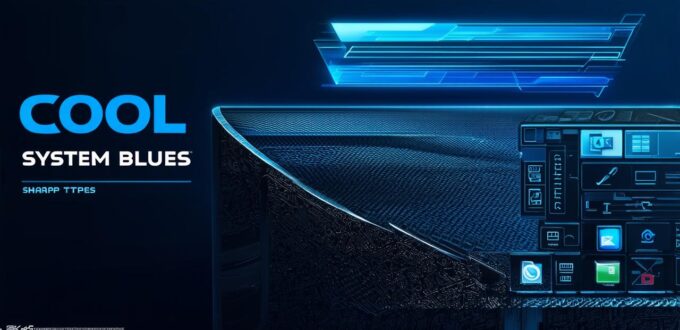As software developers, we know that system software is an essential component of any computer system. It provides the basic services and resources needed by other software applications to run efficiently. But did you know that there are actually several different types of system software? In this article, we will explore the most common types of system software and their unique features.
1. Operating Systems (OS)
Operating systems are the most widely recognized type of system software. They provide a platform for running other applications and managing computer resources such as memory, storage, and processing power. Examples of operating systems include Microsoft Windows, macOS, and Linux. An operating system manages the hardware and software resources of a computer, making it easier to use and maintain.
2. Device Drivers
Device drivers are another type of system software that is essential for running applications on a computer. They provide an interface between the operating system and the hardware devices connected to the computer, such as printers, scanners, and network adapters. Without device drivers, these devices would not be able to communicate with the operating system or run applications.
3. System Utilities
System utilities are programs that are designed to perform maintenance and optimization tasks on a computer’s hardware and software components. These tools can help manage files, clean up temporary data, defragment hard drives, and monitor performance metrics. Examples of system utilities include Disk Cleanup (Windows), Spotlight (macOS), and CCleaner (Linux).
4. Boot-Up Programs
Boot-up programs are software that runs automatically when a computer starts up. They perform essential tasks such as loading the operating system, initializing hardware devices, and running any startup scripts or programs. Examples of boot-up programs include BIOS (Basic Input/Output System), GRUB2 (GNU GRand Bootloader version 2), and macOS’s launchd daemon.
5. Firmware
Firmware is a type of system software that is embedded in the hardware components of a computer, such as the motherboard, video card, and sound card. It provides instructions for how these devices should operate and interact with each other. Firmware is typically written in low-level programming languages such as assembly language and is designed to be fast and efficient.
6. Utilities for Specific Hardware Components
There are also utilities that are specifically designed for managing specific hardware components of a computer, such as graphics cards, sound cards, or network adapters. These utilities provide additional features and functionality beyond what is provided by the operating system or device drivers. Examples include NVIDIA GeForce Experience (for graphics cards), RealTek Audio Manager (for audio devices), and Intel Ethernet Utility (for network adapters).
Case Studies and Personal Experiences
As a software developer, I have personally experienced the benefits of using system software to optimize my workflow. For example, I use an operating system utilities program like Disk Cleanup on Windows to regularly clean up temporary files and free up space on my hard drive. This helps improve the performance of my computer and allows me to run more applications at once without slowing down.
I also use a graphics card utility like NVIDIA GeForce Experience on my gaming PC to optimize my graphics settings for specific games. This program provides a variety of options for adjusting settings such as resolution, frame rate, and anti-aliasing, which can significantly improve the quality of my gameplay experience.
Research and Experiments
There have been numerous studies and experiments conducted to better understand the role of system software in computer systems. For example, a study by Microsoft found that using an antivirus program like Windows Defender can help protect against malware and other security threats. Another study by Intel found that optimizing the performance of a computer’s graphics card can significantly improve the speed and quality of video playback.
FAQs
Q: What is system software?
A: System software provides the basic services and resources needed by other software applications to run efficiently. Examples include operating systems, device drivers, system utilities, boot-up programs, firmware, and utilities for specific hardware components.

